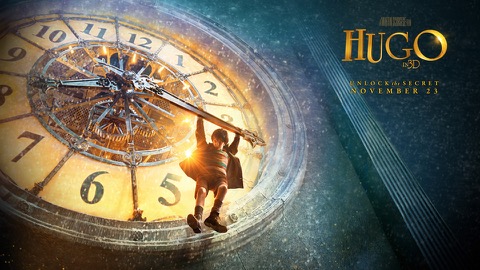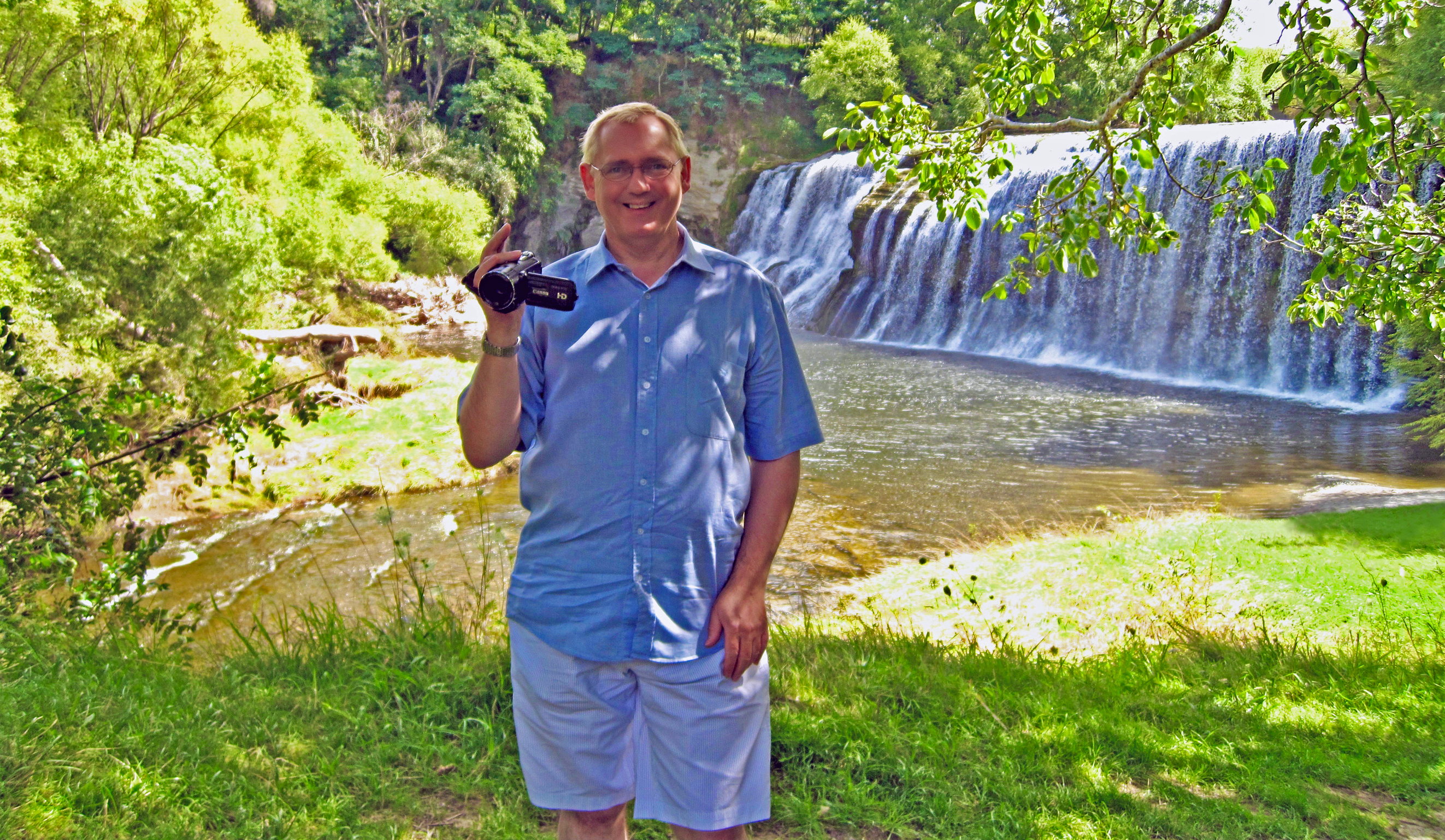Reviews
Doctor Faustus Lights the Lights
29/10/18 12:56
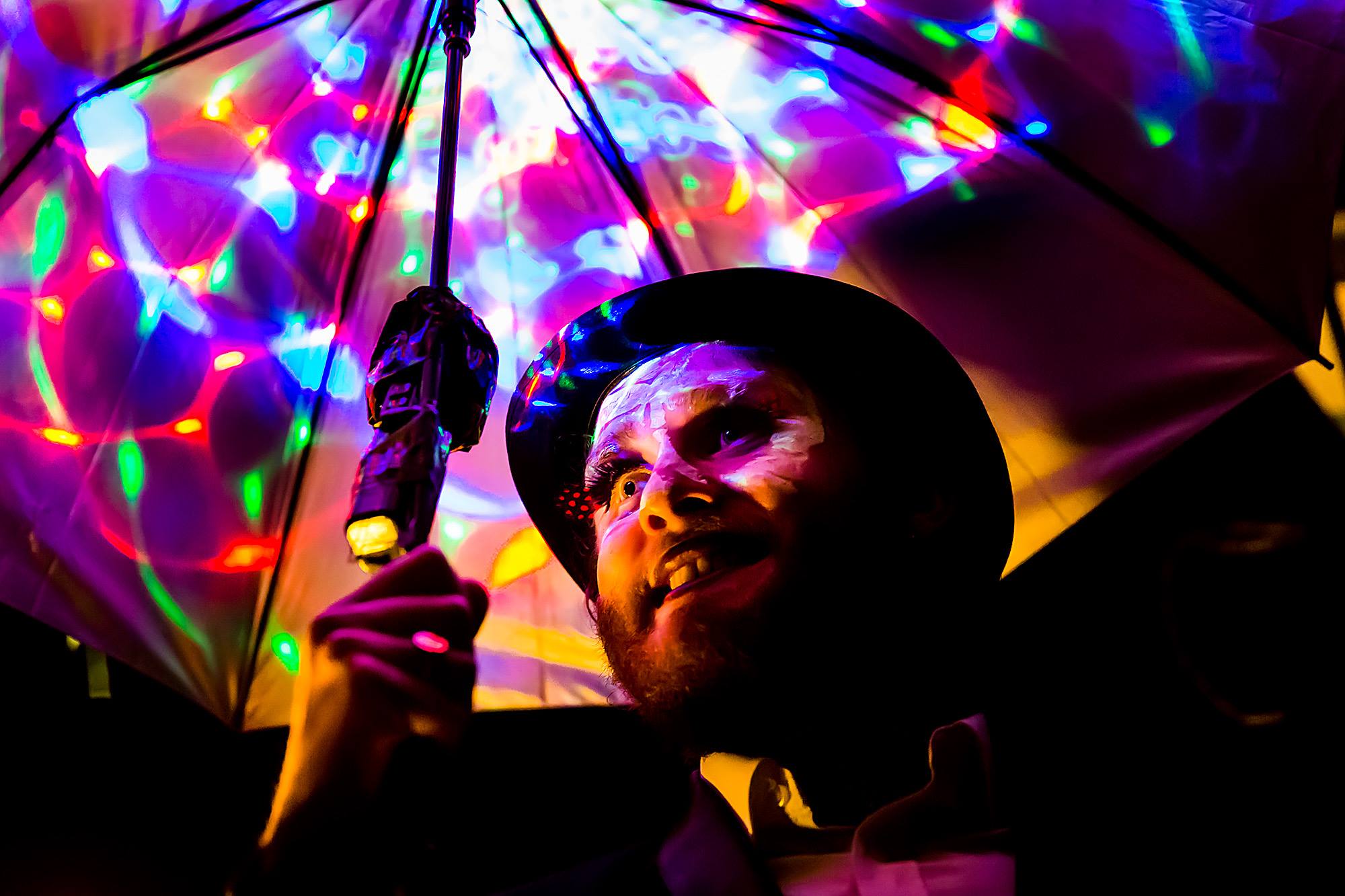
I have attended many productions over the years that claim to be a theatrical experience unlike any other. They invariably disappoint. Doctor Faustus Lights the Lights is the exception. This extraordinary extravaganza by the insanely talented Long Cloud Youth Theatre at Wellington’s Scruffy Bunny Improv Theatre (cool name!) is a night that will live long in the memory.
From pre-performance interactions with the cast onwards, the audience is sucked into the fantastic world of Doctor Faustus. There are no seats in the auditorium. The action takes place all over the place. You are part of the story—you are in the middle of the story! Some in the audience seem a little perplexed at first. Heads shake. They gyrate to the edges of the space. But the energy is infectious. Light, colour, drama. Everywhere. Your eyes dance. You don’t want to miss a moment. Hypnotic rhymes. Mesmerising lyrics. And Beethoven. A toxic combination.
By the end of the hour-long performance, even the most reserved theatregoers find themselves involved, clapping, dancing, singing alongside the actors with a vitality almost matching that of the young performers.
Doctor Faustus Lights the Lights is contemporary theatre at its best. It’s not for the pseudo-intellectuals who spend their lives expounding the centrality of realism as an aesthetic stance. Rather, it is a group of energetic young performers on a voyage of discovery, a quest to stretch their creative talents to the limit—and beyond. It’s a privilege to share this journey. And an evening I will never forget.
Photo Credit: Philip Merry
Fiona McIntosh and The Tea Gardens
24/12/17 10:25
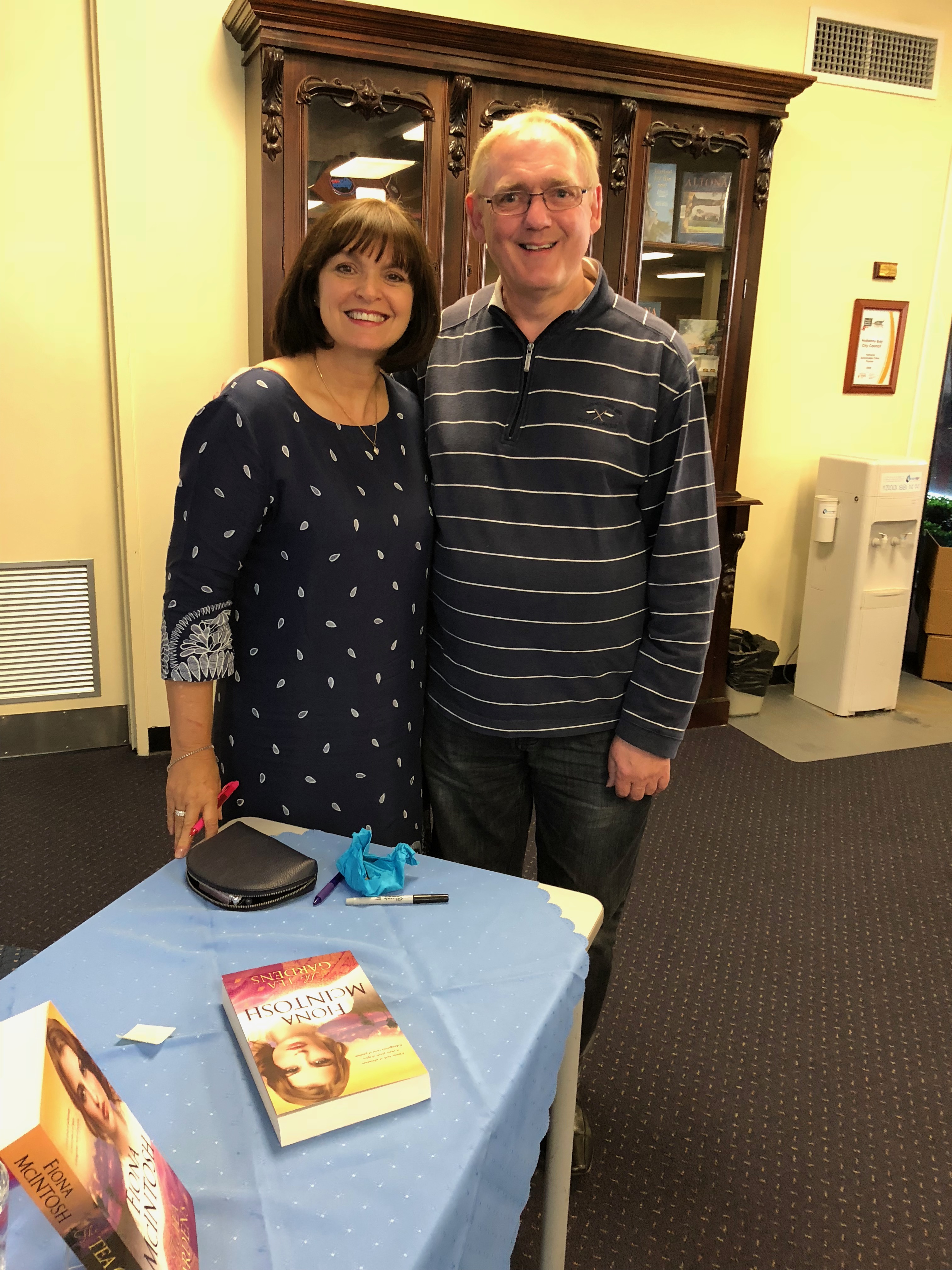
On a recent visit to Melbourne for a medical conference, I had the pleasure of meeting best-selling Australian author Fiona McIntosh. Coincidentally I just finished reading her latest novel The Tea Gardens on my flight across the Tasman.
The Tea Gardens has particular significance for me. Like the novel's heroine, Isla Fenwick, as a young doctor I worked in India in a region of overwhelming need.
Fiona's evocative descriptions brought back that heady mixture of awe and panic as the sights, sounds and smell of India flood the senses. Even more revealing, the novel captures that strange combination of professional competence and emotional naivety that so many medical graduates experience on entering the outside world.
We meet Isla as she faces a personal dilemma on her return from India. In her own words, she recalls her defining rite of passage. Her journey begins in the grey streets of London in 1933 where her widowed father engineers a meeting with an old flame, the aptly named Jovian Manderville. But Isla made a promise to strike back at the tropical disease that took her mother's life.
We live and breathe Isla's journey to Calcutta and share her joy and despair as she sets up a midwifery clinic. Her attempt to save a girl whose pregnancy violates the caste system ends in tragedy and endangers the life of a brilliant but maverick colleague, Professor Saxon Vickery. Facing personal and professional ruin, Isla follows Vickery to the foothills of the Himalayas, where she finds love, forgiveness and guilt in a resolution that questions all that she holds dear.
Thankfully, my time in India was much less dramatic than Dr Fenwick's but proved none the less life-changing.
Fiona regaled a delighted audience at the Altona Library with tales of her trip to India to research The Tea Gardens. Her anecdotes ranged from the ingenious to the outrageous, seducing a member to gain entry to a gentleman's club in Calcutta. Fiona told us that she does not write about anywhere that she has not experienced first hand. It shows in her work. When you finish The Tea Gardens you too have travelled from the grime of Britain to the squalor of Calcutta and the ethereal beauty of the Himalayas.
I have to admit to a tinge of jealousy for Fiona's lifestyle. I'll have to set my next story further afield.
48 times a second
01/02/13 22:22
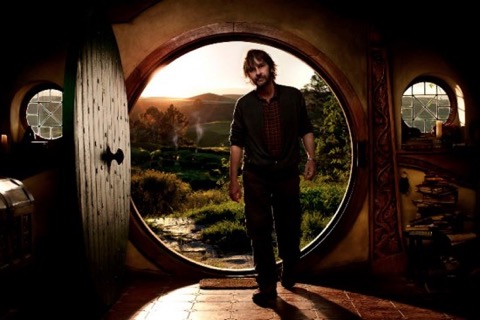
Peter Jackson has been explaining his decision to shoot The Hobbit: An Unexpected Journey in 3d High Frame Rate.
Sir Peter writes:
We live in a rapidly advancing digital age. Technology is being continually developed that can enhance and enrich the cinema-going experience. High Frame Rate shooting for a mainstream feature film has only become viable in the last year or two, and yet we live in an age of increasing home entertainment. I started shooting The Hobbit films in HFR because I wanted film audiences to experience just how remarkably immersive the theatrical cinema experience can be.
I think HFR is terrific. As a filmmaker, I try to make my movies immersive. I want to draw the audience out of their seats, and pull them into the adventure. That is the experience I hope to offer moviegoers no matter which format they choose at the theatre. While I personally prefer watching The Hobbit: An Unexpected Journey in HFR 3D, I can assure you that every format will provide you with an incredible and immersive experience.
Peter’s last sentence says it all. I have seen The Hobbit: An Unexpected Journey in all three formats - 3D High Frame Rate, 3D and 2D. What is so spacial about seeing a film likeThe Hobbit in the cinema is not the format but the shared experience that only a cinema can provide. From the intensely electric atmosphere that captivates the entire audience when Gollum appears, to the communal joy when Thorin Oakenshield finally accepts Bilbo Baggins into the company - this can only be experienced as part of a larger audience. This is the real magic of the cinema.
33 Postcards
17/06/12 20:47
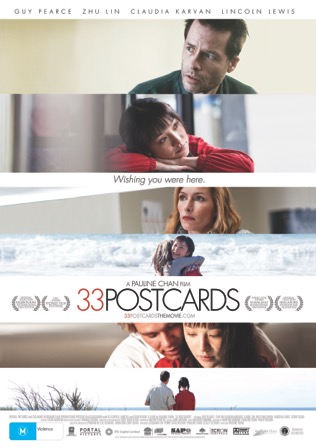
What an amazing year this has been at the cinema! Today I saw another truly inspiring film, demonstrating so eloquently the unique power of the film medium.
33 Postcards tells the compelling story of Mei Mei (played by Zhu Lin), a 16 year old Chinese orphan whose life has been transformed by donations from her Australian sponsor Dean Randall (played by Guy Pearce). Dean sends Mei Mei postcards that paint an idyllic picture of his family life. Life changes irrevocably for both Mei Mei and Dean when her orphanage choir travels to Australia to participate in an Australian choir festival.
Mei Mei takes seeks out Dean when she arrives in Australia and discovers the shocking truth. Dean is not the park ranger and family man of his postcards, he is in prison with a manslaughter conviction. Yet for Mei Mei, Dean is still her saviour and her last chance of finding a real family.
At the heart of 33 Postcards is the relationship between Mei Mei and Dean, two lonely souls on the fringe of society. At times it’s a heartbreaking right of passage, with Mei Mei caught up in the criminal underworld and Dean a victim of intimidation in prison, but a deeply rewarding journey.
This is independent film making at its very best.
As a footnote, 33 Postcards won awards at the Melbourne International Film Festival and the Sydney Film Festival. I entered Amiri & Aroha in both these festivals. I feel humbled to have been in competition with such a brilliant film. Congratulations to Pauline Chan and her team for an inspiring piece of creative cinema and a very worthy winner!
The Best Exotic Marigold Hotel
31/03/12 19:04
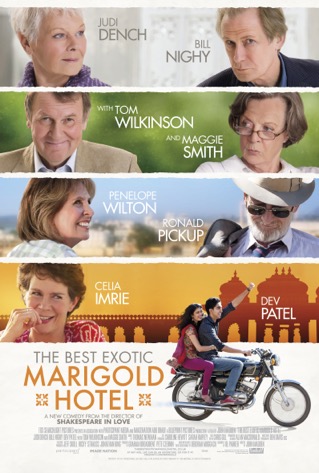
Every once in a while, a film comes along which strikes such a chord with our hearts that it instantly gains a place in our all time favourite films. For me today, that film was The Best Exotic Marigold Hotel.
The Best Exotic Marigold Hotel is that all too rare combination of a truly touching story, were you get involved with the characters and care about them, with genuinely heartwarming humour.
The Best Exotic Marigold Hotel tells the story of a group of British retirees who decide to outsource their retirement to India, which promises to be less expensive and more exotic. Each has their own reason to leave (their back stories are cleverly told in the opening moments of the film) and are enticed by advertisements for the newly-restored Marigold Hotel and look forward to a new life. But the Best Exotic Marigold Hotel is not what they expected, the palace is a shell of its former self. The phones don't work, the building is run-down, yet they are forever transformed by their shared experiences, discovering that life and love can begin again when you let go of the past.
Many of the locations in Jaipur and Udaipur are familiar to me as I shot my own film The Tale of the Indian Merchant at the railway station in Jaipur and at the palace in Udaipur.
John Madden’s inspired direction captures the real feel of India, the chaos, the sounds, you can almost smell the spices in Jaipur’s bustling markets. You are right there with the characters.
This is a film to treasure.
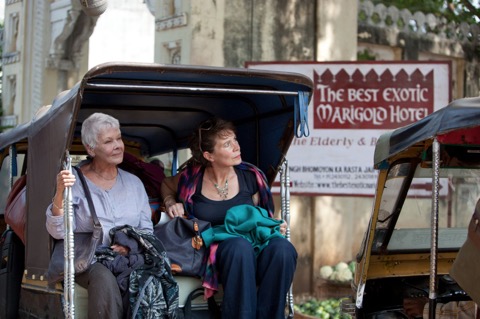
The incomparable Judi Dench with Celia Imrie in The Best Exotic Marigold Hotel
Inspiration from the masters!
19/01/12 22:58
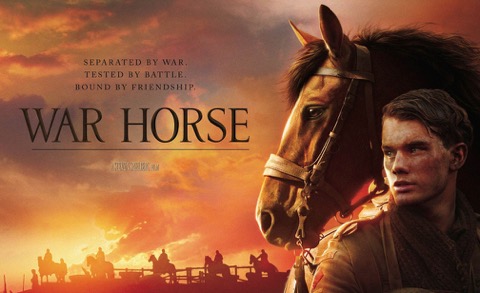
I was privileged to see two wonderful films from two great masters of the cinema during breaks in our shooting schedule this week in Gisborne.
War Horse is Steven Spielberg at his very best, an intimate epic in the mould of The Color Purple and Empire of the Sun. A gripping story, War Horse tells how an impoverished young farmer’s son, Albert enlists to serve in World War I after his beloved horse is sold to the cavalry. Albert's heart wrenching journey takes him out of England and across Europe as the war rages on. Spielberg’s storytelling genius takes you with Albert on this journey, you share his pain, despair and joy at every twist and turn on this extraordinary story. Absolutely unforgettable.
The news that Martin Scorsese was to make a 3D film was greeted with dismay by many fans and intellectual film critics. Hugo certainly marks a new direction for Scorsese, but all the hallmarks of the great director are here in this beautifully crafted story. Set in 1930s Paris, Hugo tells the story of an orphan who lives in the walls of a train station, determined to solve a mystery of an automaton left by his late father, a deeply felt rite of passage. Tremendous to see intelligent use of 3D, a great master of cinema using new technology to push boundaries and further the unique possibilities of the film medium.
These two masterpieces eloquently demonstrate the art of the cinema and reminded me why I love cinema so much - and why I want to make films. Inspiration indeed!
